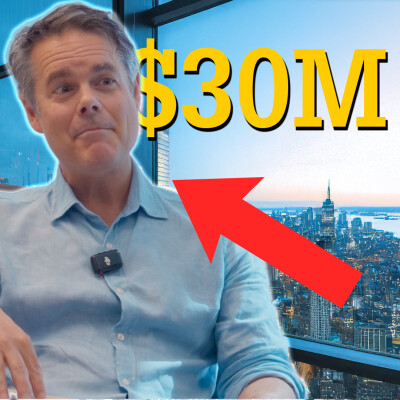Description
Paul Gallay is Lecturer & Co-Director at the Columbia Climate School. Columbia University is a global leader in climate and sustainability education, aiming to bring an interdisciplinary knowledge base for future climate leaders to work with businesses, communities, governments, and civil society to address the climate crisis.
If you recall Season 3, Episode 13, I had David Lloyd Owen on that microphone to discuss his book, Global Water Funding. I've said it several times ever since, but if there's one book you shall read to understand the water challenges ahead, it's this one. It's hard to read, it's packed, and it's dense, but it's invaluable!
So, in that book, I discovered the Catskill Mountain and Croton Watershed agreements, which the city of New York concluded in the 1990s. The Idea was to leverage nature-based solutions to prevent pollutants from entering New York's water scheme rather than heavily investing in a treatment plant that would take them out.
Since then, we've further explored nature-based solutions on that microphone, with the City of Glasgow, the City of Paris, or watershed experiments in Italy and Austria.
Yet, I had never heard of the one Paul will touch on in a minute after expanding on the New York watershed example I just mentioned.
And that new program he'll introduce to us is the perfect example of a clever application of the Climate Change adaptation we discussed with Kevin Sofen last week. Climate Change is here to stay; it will have consequences, and fencing those off using nature sounds like a very sensible approach!
Water quality, involving communities, teaching, or further researching, there's a dense agenda for today's conversation. So without further due, let me remind you that if you like what you hear, please - and I can't stress that enough - share it around you. Grab your friends' phones, and subscribe them to the podcast. Recommend your favorite episode to a colleague, or tell the World with a LinkedIn post! And, of course, if there's anything you don't like about the podcast, come tell me!
Can Nature Protect New York From Water Catastrophes? Yes!
Hosted on Ausha. See ausha.co/privacy-policy for more information.
![[Extract] "We need to Bring People into the Equation!" - Paul Gallay - Columbia Climate School cover](https://image.ausha.co/BHaA7T9ZpZa206oHI1Ux6chdIWB8SCUezKqYzcK7_400x400.jpeg)

![25 Years of Acquisitions Built This Water Tech Powerhouse [M&A] cover](https://image.ausha.co/6xHgWghhG8OqgQaZ4Jpi3EzqoqcC8w1w1vWw6qNl_400x400.jpeg)

